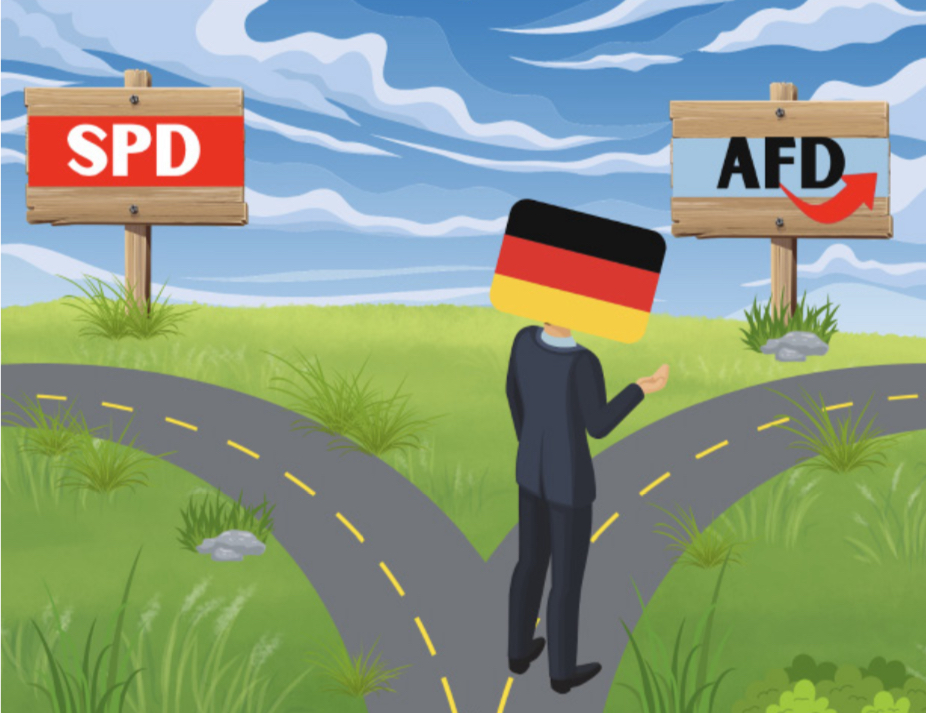On June 9, Germany’s far right extremist political party won almost a third of the votes in the eastern state.
The “Alternative for Germany,” or AfG, became the most popular political party in Thuringia since 1945, which was the end of World War II.
Juliana Murguz ’25 said, “As a German citizen, I think the rise in far right extremism is extremely concerning, and the spread of its ideas poses a threat to many other European democracies.
“This growing trend of nationalistic ideas in post-communist German states
augment the increasingly tense political atmosphere of Germany, as well as its future.”
Unlike in America, Germany runs on a parliamentary system and has more than two parties that represent the public’s beliefs. This means that the rising popularity in the AfD will result in more seats being given to those representatives.
Of the currently six major political parties, the Alternative for Germany has been known for being anti-Muslim and anti-immigration. The AfD is popular with eastern German states due to unrest, immigration issues, and their history of being divided.
Many consider the AfD’s views extremist but not opposed to democracy. They narrowly missed the five percent threshold to have seats in the Bundestag (Germany’s national parliament) in 2013, but have recently been making a rise and are now tied for second in popularity with the Social Democratic Party (SPD).
They are likely to take second place after the CDU/CSU, who are Christian and center-right.
The AfD is still one of the members of the opposition, which is the collection of less popular political groups. The SPD and CDU/CSU currently have the most seats in the Bundestag; however, that is predicted to change with the rise of the AfD.
But it’s not just Germany that has been experiencing far-right and extremist trends. Other countries in Europe as well, such as Italy and Slovakia, have had as a rise in far-right beliefs and now have far-right parties in government.
Eric Dean ’25, a student with German heritage, said, “It’s surprising how quickly this political party has been able to grow in eastern Germany. However, it is not uncommon in the world. Similar trends have been seen in places like the USA… in recent years.”
Gen Z voters–especially young men–have been an emerging demographic among the far- right in recent elections. This phenomenon has been observed in both the US and UK, a trend that has concerned historians and political scientists.






